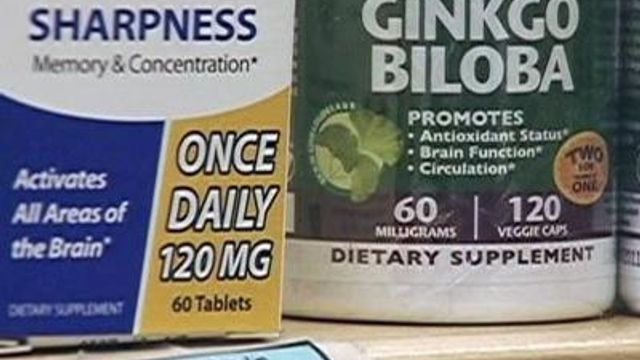Researchers examine herb's effect on memory
Ginkgo biloba, an herb found in health food stores, is touted by many to help slow down cognitive decline or even improve memory and thinking.
Posted — UpdatedWith aging, mental challenges, such as concentrating on a card game, figuring out a jigsaw puzzle or following along in an exercise class, can become more difficult.
Ginkgo biloba, an herb found in health food stores, is touted by many to help slow down cognitive decline or even improve memory and thinking.
But according to a study published in the Journal of the American Medical Association, the herb does not prevent decline or improve cognitive functioning.
“We found that there was no effect of the ginkgo biloba on these very slow but clearly detectable changes in thinking function in late life,” said Dr. Steven DeKosky, dean of the University of Virginia's School of Medicine.
DeKosky, an international leader in the field of Alzheimer's disease research, lead a study into the herb's effects.
Researchers conducted a double-blind, controlled randomized trial to evaluate the cognitive functions of 3,069 adults aged 72 to 96 years old.
Half of the participants received a placebo and the rest received 120 milligrams of ginkgo biloba extract twice daily from 2000 to 2008.
“What we can say is that we found no evidence that ginkgo, over this long period of time, made a difference in whether someone's slow change in memory function, as a function of normal aging, was affected at all by the medication,” DeKosky said.
Researchers said while there have been other studies on ginkgo, many were not long enough, consistent enough or large enough.
“This is the first and, so far, the only study that has looked specifically at its ability to prevent decline,” he said.
Researchers also found no evidence that taking ginkgo presented any dangerous side effects in the study participants.
• Credits
Copyright 2024 JAMA. All rights reserved.





